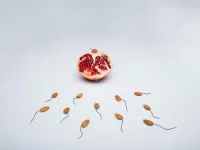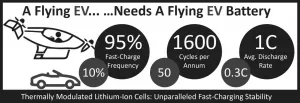Improved method for generating synthetic data solves major privacy issues in research
Researchers use probabilistic modelling to generate synthetic data that can help develop better medical treatments and drugs without privacy worries
2021-06-07
(Press-News.org) The lack of data is a major bottleneck for many kinds of research, and especially for the development of better medical treatments and drugs. This data is extremely sensitive and, understandably, people and companies alike are often unwilling to share their information with others.
Researchers at the Finnish Center for Artificial Intelligence have developed a machine learning-based method that produces synthetic data on the basis of original data sets, making it possible for researchers to share their data with one other. This could solve the ongoing problem of data scarcity in medical research and other fields where information is sensitive.
The generated data preserves privacy, remaining similar enough to the original data to be used for statistical analyses. With the new method, researchers can conduct an infinite number of analyses without compromising the identities of the individuals involved in the original experiment.
"What we do is we tweak the original data sufficiently so that we can mathematically guarantee that no individual can be recognized," explains Samuel Kaski, Aalto University Professor and Director of FCAI, who co-authored the study.
Researchers have produced and used synthetic data before, but the new study solves a major problem with existing methods.
"We might think that just because data is synthetic, it's safe. This has not necessarily been the case, though," explains Kaski.
This is because synthetic data needs to be very similar to the original data set in order to be useful in research. In practice, it has occasionally been possible to identify individuals' identities despite anonymization.
To address this problem, FCAI researchers make use of artificial intelligence, specifically probabilistic modelling. This enables them to use prior knowledge about the original data and the processes that have made it the way it is - without getting too close to the properties of the particular data set used as basis for the synthetic data. Such prior knowledge, for instance, could relate to known gender differences in alcohol-related mortalities, or could involve domain knowledge about how a particular data set has been collected.
Making use of prior knowledge has also made the synthetic data sets more useful for making correct statistical discoveries -- even in cases where the original data set is limited in size, which is common in medical research.
"Incorporating prior knowledge means we can use the method with small data sets, for which we have domain knowledge," Kaski says.
The results are published 7 June in the journal Patterns.
INFORMATION:
ELSE PRESS RELEASES FROM THIS DATE:
2021-06-07
Researchers at Queen Mary University of London have tested an algorithm on 700,000 patient records in east London, to find out if the data routinely collected by GPs can reveal cases of Familial Hypercholesterolemia - a leading cause of heart attack in young people.
Familial Hypercholesterolemia (FH) is a condition passed down through families that causes extremely high levels of cholesterol in the blood. Without treatment, it can lead to a heart attack at a very young age. FH affects 320,000 people in the UK, the vast majority of whom are unaware they have it.
One method of detection is the 'FAMCAT' (Familial Hypercholesterolemia Case Assertation Tool) which analyses data in GP records - including ...
2021-06-07
The ability of stem cells to fix impaired functions of host tissues after transplantation has been a lifesaving breakthrough in treating previously incurable conditions. Much like a coin toss, however, the fate of the transplanted stem cells is unpredictable. They may choose self-renewal, grow into a different kind of tissue, or die.
Spermatogonial stem cells follow the same stochastic fate of unpredictability in outcomes. But a group of fertility scientists led by Hiroshima University's Yoshiaki Nakamura discovered a new method that has favorably flipped the odds and successfully reversed male infertility in mice -- showing great promise for future applications in regenerating human sperm after cancer treatment ...
2021-06-07
Normally, the ACE2 enzyme helps regulate our blood pressure. The enzyme sits on the surface of cells, including cells in the lungs, but in connection with COVID-19 it has been found that ACE2 also functions as a gateway for the virus.
"Different viruses have different ways of accessing our cells - as the virus must, of course, get into the cell to be able to replicate, and the coronavirus uses ACE2 to gain access. For this reason, we're investigating what the concentration of ACE2 means for the course of the disease, if you get COVID-19," explains MD and PhD Tue Wenzel Kragstrup from the Department of Biomedicine at Aarhus University. The preliminary results have just been published in the scientific journal PLOS ONE.
As mentioned, ACE2 is part of the surface of the cells, but ...
2021-06-07
AUSTIN, Texas -- Puerto Rico is not ready for another hurricane season, let alone the effects of climate change, according to a new study that shows the island's outstanding capacity to produce record-breaking floods and trigger a large number of landslides.
The latest research, appearing in the journal END ...
2021-06-07
Jet packs, robot maids and flying cars were all promises for the 21st century. We got mechanized, autonomous vacuum cleaners instead. Now a team of Penn State researchers are exploring the requirements for electric vertical takeoff and landing (eVTOL) vehicles and designing and testing potential battery power sources.
"I think flying cars have the potential to eliminate a lot of time and increase productivity and open the sky corridors to transportation," said Chao-Yang Wang, holder of the William E. Diefender Chair of Mechanical Engineering and director of the Electrochemical Engine Center, Penn State. "But electric vertical takeoff and landing vehicles are very challenging technology for the batteries."
The researchers define the technical requirements ...
2021-06-07
Bdelloid rotifers are multicellular animals so small you need a microscope to see them. Despite their size, they're known for being tough, capable of surviving through drying, freezing, starvation, and low oxygen. Now, researchers reporting in the journal Current Biology on June 7 have found that not only can they withstand being frozen, but they can also persist for at least 24,000 years in the Siberian permafrost and survive.
"Our report is the hardest proof as of today that multicellular animals could withstand tens of thousands of years in cryptobiosis, the state of almost completely arrested metabolism," says Stas Malavin ...
2021-06-07
The aurora borealis, or northern lights, that fill the sky in high-latitude regions have fascinated people for thousands of years. But how they're created, while theorized, had not been conclusively proven.
In a new study, a team of physicists led by University of Iowa reports definitive evidence that the most brilliant auroras are produced by powerful electromagnetic waves during geomagnetic storms. The phenomena, known as Alfven waves, accelerate electrons toward Earth, causing the particles to produce the familiar atmospheric light show.
The study, published online June 7 in the journal Nature Communications, concludes a decades-long quest to demonstrate experimentally the physical mechanisms for the acceleration of electrons by Alfven waves under ...
2021-06-07
What The Study Did: In this study, short-term effectiveness of the first dose of the BNT162b2 (BioNTech/Pfizer) vaccine against SARS-CoV-2 infection 13 to 24 days after immunization in a real-world setting was assessed.
Authors: Gabriel Chodick, Ph.D., of the Maccabi Institute for Research & Innovation, Maccabi Healthcare Services, in Tel Aviv, Israel, is the corresponding author.
To access the embargoed study: Visit our For The Media website at this link https://media.jamanetwork.com/
(doi:10.1001/jamanetworkopen.2021.15985)
Editor's Note: Please see the article for additional information, including other authors, author contributions and affiliations, ...
2021-06-07
What The Study Did: Among children with a COVID-19 diagnosis, researchers in this study examined what other conditions are common and which are associated with severe COVID-19 illness.
Authors: Lyudmyla Kompaniyets, Ph.D., of the U.S. Centers for Disease Control and Prevention in Atlanta, is the corresponding author.
To access the embargoed study: Visit our For The Media website at this link https://media.jamanetwork.com/
(doi:10.1001/jamanetworkopen.2021.11182)
Editor's Note: Please see the article for additional information, including other authors, author contributions and affiliations, conflict of interest and financial disclosures, ...
2021-06-07
What The Study Did: Researchers analyzed conversations on public Facebook groups to explore automated misinformation.
Authors: John W. Ayers, Ph.D., M.A., of the University of California, San Diego, in LaJolla, is the corresponding author.
To access the embargoed study: Visit our For The Media website at this link https://media.jamanetwork.com/
(doi:10.1001/jamainternmed.2021.2498)
Editor's Note: The article includes conflict of interest and funding/support disclosures. Please see the article for additional information, including other authors, author contributions and affiliations, conflict of interest and financial ...
LAST 30 PRESS RELEASES:
[Press-News.org] Improved method for generating synthetic data solves major privacy issues in research
Researchers use probabilistic modelling to generate synthetic data that can help develop better medical treatments and drugs without privacy worries



